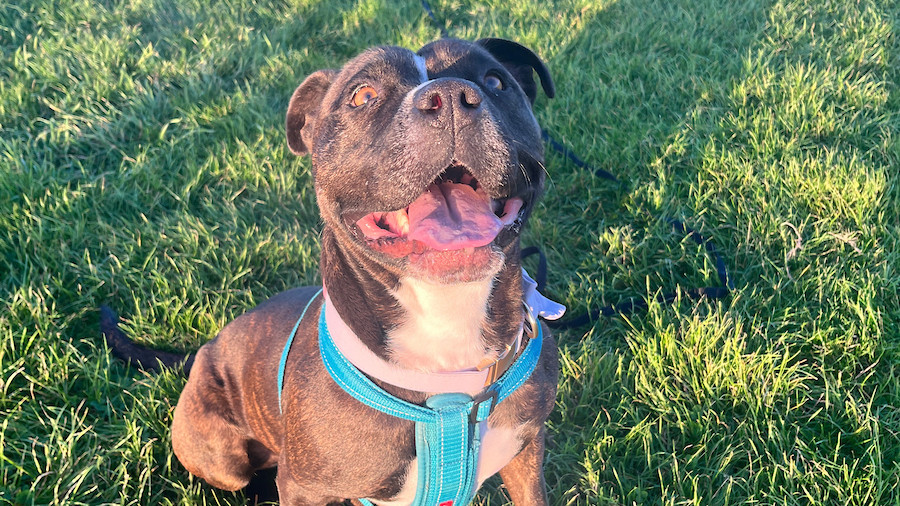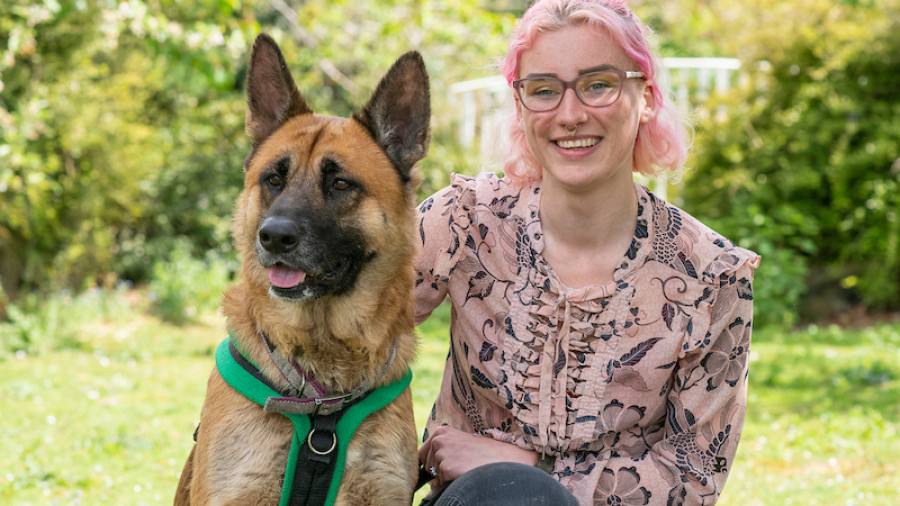

How can I stop my dog from running away?
Every time I take my 2-year-old Spaniel to the park, she runs off and completely ignores me when I call her back, even if I have treats. She loves chasing after birds and other dogs, but I get really nervous because I'm afraid she’ll run into the road or get lost. I’ve tried recall training at home, but when we're outside, she’s way too distracted to listen. What can I do to get her to come back when I call her, even when we’re at the park with so many distractions?

What our expert says
There’s nothing better than watching your dog run around an open space, knowing if you call them back, they will come willingly. Some dogs get a real kick out of chasing things they shouldn’t though, and if you find your dog prefers a taste of freedom and runs away from you, there are ways to avoid this, and teach them to come back when called.
Secure any fencing in the garden, use a barrier or stair gate to prevent them escaping out of the front door, and make sure they’re on a secure lead and harness when out and about.
You need to be confident your dog will respond to you when off their lead – even from a distance! Revisit your basic recall training with the steps below. A reliable recall is important, especially around distractions, including children and other dogs.
When you’ve chosen a recall word, build an association with it. With your dog in the same room as you, say their name and the chosen word and as they come towards you give them verbal praise and a treat, so the word receives a positive and enthusiastic response. Repeat the word while moving a few feet away from your dog, and each time they respond and come to you, offer a tasty reward. Or use tug and chasing toys here, whatever your dog enjoys the most!
Once you’ve cracked doing this in the house, move the training into your garden where there are more external distractions, and then it’s time to up the ante and try using the chosen word outdoors on a walk. Use a longline until your dog has a reliable recall, as attaching a longline to your dog’s body harness means you’re still in control but they have enough freedom to enjoy a run while learning to come back to you.
Some dogs find toys more exciting than treats while out on walks, so you can use one of their favourites to reinforce recall. Keep the toy in your pocket, until using the recall word, then give your dog the toy, so they’ll learn they’ll get to play with it when they respond to you. The more fun and entertainment you provide, the less likely your dog will ignore you!
Don’t repeat the recall word if your dog doesn’t listen to you, as this could affect the positive association of the cue. If your dog hasn’t returned to you, it’s fine to go and get them, or try distracting their attention by running around or making a silly noise, as you want the recall word to mean they’ll willingly and happily come back to you.
It’s also important to ensure you can get a hold of your dog’s collar, while working on recall with them, as you don’t want to end up with a dog that comes and takes their reward treat or toy, and then runs off!
ALWAYS reward recall, even by just smiling at your dog and telling them how good they are and that you love them – teaching your dog to come when they’re called is one of the lessons that could save their life.
For more information on this topic, Lindsay Arliss recommends these articles:


Hear from other humans
Carla
- Dog breed: Corgi
- Dog age: 3 years
- Owner expertise: Novice
I was struggling with my dog's anxiety, especially when we had to leave the house. Thanks to Woodgreen's advice, I've made some changes that have worked wonders. By sticking to a consistent routine, my dog knows what to expect each day, which has significantly reduced her anxiety.
Sarah
- Dog breed: Cockerpoo
- Dog age: 6 months
- Owner expertise: Novice
This advice really helped me and my new pup! I tried teaching recall without your guidance and struggled. Woodgreen's step-by-step dog training videos break each action down for you and I'm happy to say we finally made progress!